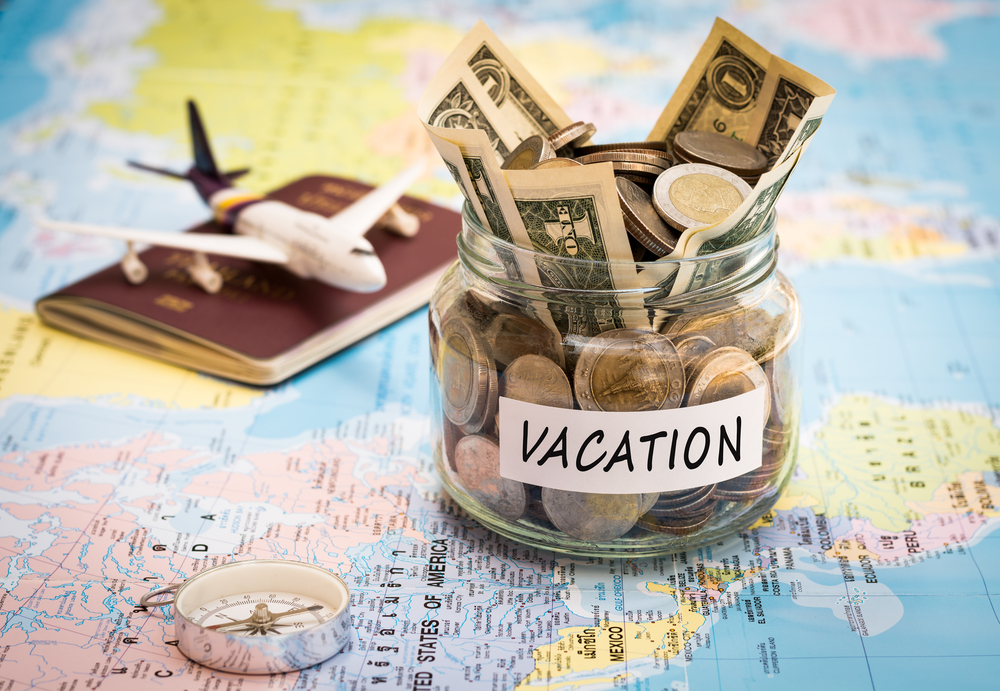- Creating a budget helps you understand how much money you can spend on travel and is an important first step in planning your trip.
- Traveling during the off-season gives you access to last-minute deals and deeply discounted rates from businesses trying to fill spots.
- Travel search engines, travel reward credit cards and other tools can help you find the best travel rates and save on overall costs.
Social media images of friends and influencers traveling the world and staying in extravagant hotels can easily inspire travel envy, but most people prefer to travel without spending exorbitant amounts. Budgeting for a trip and finding creative ways to cut costs gives you a sense of preparation and control, so you can better enjoy your vacation.
With some cost-effective planning and strategizing, it won’t be long before you’re posting beautiful travel photos of your own.
Create a Budget
Creating a trip budget is the first and most important step as it provides a basis for the rest of your travel plans. Analyze your personal budget to determine how much money you have available for travel expenses, then allocate those funds to three categories:
- Preparation expenses: Money spent before your trip, such as for passports, travel insurance, visas, vaccinations and transportation.
- Actual expenses: Costs incurred during your trip for accommodations, activities and food.
- Emergency funds: Money in case of emergencies, such as stolen cash or unexpected expenses.
Keep track of your budget by setting up spreadsheets. A visual overview of your trip budget can help identify which expenses you might need to cut out or where you can afford more lenience.
 Shutterstock
ShutterstockNarrow Down Top Destinations
Start the next phase of your trip planning by short-listing a few of your top destinations. This provides a starting point for organizing your travel funds but gives you the flexibility to narrow your list down to destinations that fit your budget and priorities best.
If your idea of a perfect vacation involves lounging on sandy beaches, for example, create a list of your ideal beachside destination. From there, you can research which destinations have the best deals available.
 Shutterstock
ShutterstockConsider Staying Close to Home
Traveling abroad isn’t always financially feasible, but there are many ways to travel and explore without going too far. Many people opt for a staycation and explore their city or greater regions as a tourist would, which means their whole budget goes toward entertainment rather than transportation and accommodation.
Other options include:
- Taking a road trip
- Camping at a nearby national park
- Going on a hiking trip
- Booking a local tour
- Exploring a new local beach
- Staying in hostels in nearby cities
- Visiting museums and art galleries
 Shutterstock
ShutterstockIdentify Priorities and Big-Ticket Items
Get the best experience from your vacation by identifying your priorities. By factoring priority activities or expenses into your budget and then planning the rest of your costs around them, you’re ensuring that you’re spending your money exactly the way you want without missing out on the best experiences.
Some people value comfort on vacation and prefer a nicer room, but many are happy to live cheaply in hostels and splurge on experiences. If you’re visiting Costa Rica, for example, would you rather have luxury accommodations or spend your money on a scuba diving course? Do you prefer to spend your money on souvenirs or dining experiences? These are the types of questions that help organize your priorities and spending.
 Shutterstock
ShutterstockPlan Early
The earlier you start planning for your trip, the better. Many prices for transportation, hotels and attractions increase as the dates get closer, so starting your search early can help you find the best rates.
Planning early also reduces travel stress later on. Schedule which days you’ll do certain activities, book tours and tickets, arrange car rentals and organize reservations. Make sure to block off days in between big outings to relax and recover from your packed schedule.
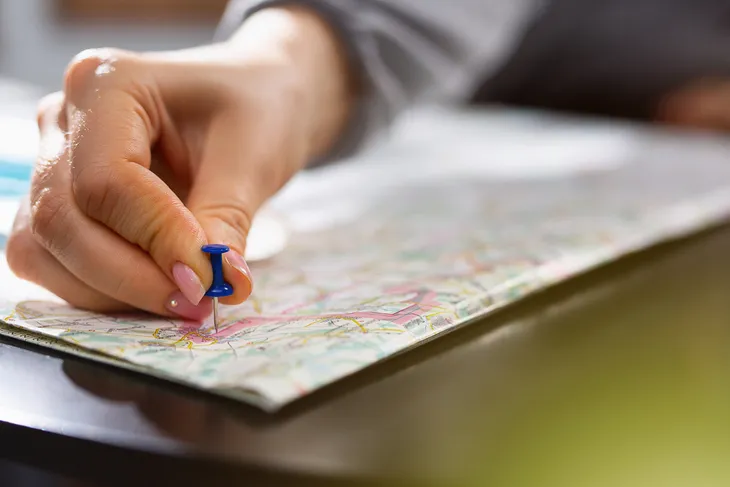 Shutterstock
ShutterstockTravel During Off-Season
Traveling during the off-season comes with lots of savings. You’ll find lower rates for accommodations and activities since tourist destinations use increased demand during the high season as an opportunity to hike prices, but they’re eager to fill up spots when business is slow. With more last-minute bookings and reservations available during the off-season, you’ll get more flexibility from your itinerary.
In addition to savings, traveling during the off-season translates into fewer crowds and lower stress as well as more opportunities to connect with locals and get their tips on exploring the area.
Keep in mind that off-seasons vary according to destinations. Tropical destinations are more popular during the winter months, but kid-friendly destinations are more crowded during spring break and summer vacation.
 Shutterstock
ShutterstockSign Up for Travel Rewards
Travel rewards credit cards pay you points, miles and cash for travel and everyday purchases. You can use these rewards toward travel expenses, such as flights and hotel stays. Although most travel credit cards require exceptional credit scores and impose annual fees, frequent travelers can earn miles for every dollar they spend.
Branded airline and hotel credit cards reward brand loyalty with extra perks. Airline credit cards pay miles for a specific airline and may also provide other benefits, such as priority boarding, lounge access or free checked bags. Hotel credit cards function similarly but reward cardholders with free stays or room upgrades.
 Shutterstock
ShutterstockResearch Flights
Flights are one of the biggest expenses involved in traveling, but there are a few ways to find the cheapest tickets to your destination. Flights are typically less expensive during the off-season, but prices can fluctuate depending on the day you book as well as the day you travel. It’s generally cheaper to travel on weekdays, but weekends tend to be the best time to actually purchase your tickets.
Airlines, search engines and other booking sites use cookies to track your activity and see which flights you repeatedly search, then increase the prices if you don’t book right away. Browsing in incognito mode prevents these sites from tracking your history and helps you find the lowest flight prices.
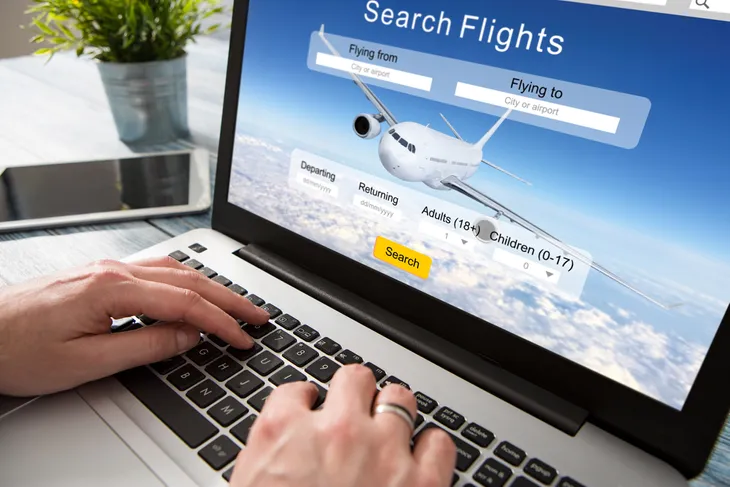 Shutterstock
ShutterstockUse Travel Search Engines To Find Deals
Websites and search engines help you find deals on everything from flights and hotels to car rentals and entertainment. Try these resources:
- Flights: Skyscanner, FlightHub and Momondo
- Hotels: Tripadvisor, Trivago and Kayak
- Activities and entertainment: Musement, Klook and Tourteller
While setting your budget first and then searching for your priority locations is generally a good strategy, travel search engine sites can sometimes offer surprising deals. Be flexible about your travel plans, and keep an eye out for deals on destinations and activities you’d never even considered.
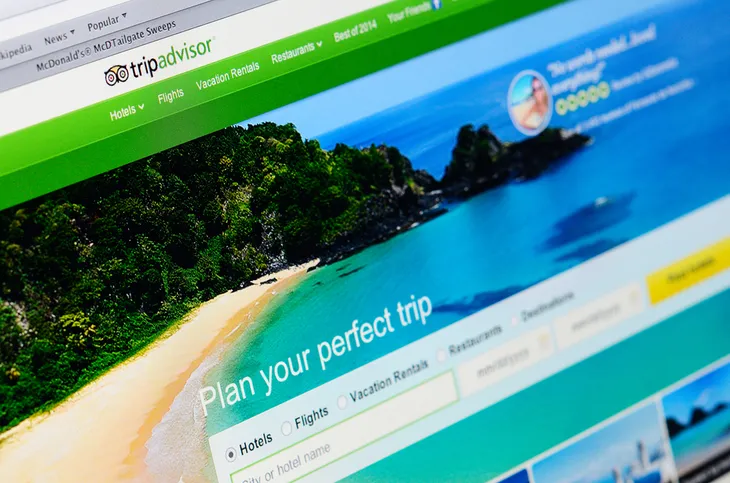 Shutterstock
ShutterstockConsider Other Forms of Accommodation
Hotels are the traditional choice for travel accommodations, but they aren’t always the most cost-effective option. Hotel alternatives can save you significant travel costs and provide unique experiences.
Consider other accommodations such as:
- Rental properties: Airbnb, Vrbo and other websites help travelers find homeowners who rent out their properties. These rentals can range from a shared room to entire houses, and homeowners often offer discounts for longer stays.
- Hostels: Although you’ll likely share amenities with other travelers at hostels all around the world, hostels are inexpensive and can connect you to travelers and locals alike.
- Couch surf: Couch-surfing isn’t always a predictable way to travel, but can nearly eliminate your accommodation costs. Check out Couchsurfing to find homeowners willing to lend a spare bed or couch.
 Shutterstock
ShutterstockSave Up
Some people prefer to book now with a credit card and pay later, but that means carrying a balance on your credit card, incurring unnecessary interest charges and adding to your overall travel expenses.
Creating a budget early on gives you a solid financial goal to work toward. Rather than charging everything to credit, save up the money for travel ahead of time.
You may need to cut out some extra costs or take on additional work to reach your savings goal. If you’re struggling with motivation or discipline, try reminding yourself of how much you’ll enjoy your travel and vacation later on.
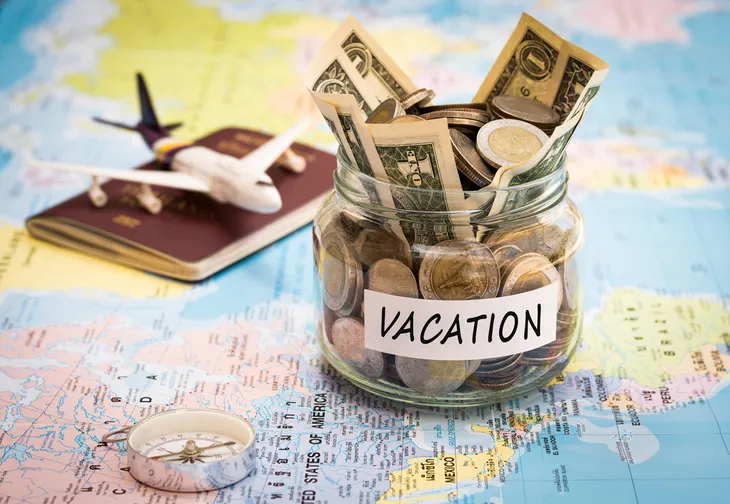 Shutterstock
ShutterstockLook for Inexpensive Entertainment
If your big-ticket items don’t leave many funds leftover for other activities, consider cheap or free entertainment options at your destination. Hospitality workers, vacation rental hosts and other locals can provide insight into events you may not otherwise be able to find, such as live music or social activities.
If you’re traveling with a group, you can sometimes earn group booking discounts of around 15% for activities, such as tours, museum visits and classes, as well as your flights and accommodations. To access these discounts, contact the reservations centers for airlines, hotels and attractions.
 Shutterstock
Shutterstock